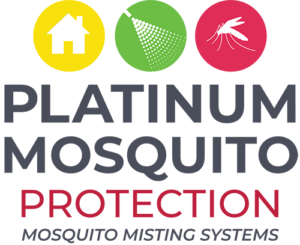The invasion has begun
If there’s one thing all Floridians might have in common, it’s their disdain for mosquitos. While the cooler and drier winter weather gave locals a bit of a reprieve, Zika headlines are waiting for the heat and humidity to return.
That’s why University of Florida researchers are concerned. In January, they announced the discovery of two invasive mosquito species in Homestead, which brings the total number of non-native mosquito species in the state to 15 – nine of those arriving in the last decade.
The new mosquitos on the block
While health officials say it’s too early to sound an alarm, researchers are wary.
For starters, Aedeomyia squamipennis and Culex panocossa usually call Central and South America, as well as several Caribbean islands, home. Their presence in South Florida may be indicative of “broader environmental changes” that have made the state more hospitable to exotic species.
In addition, both species lay their eggs on water lettuce, an aggressive invasive species in its own right that’s often found floating in canals and drainage ponds. They also like to breed close to civilization.
The invaders have different appetites
A. squamipennis predominantly feeds on birds and is able to spread West Nile, Eastern equine encephalitis, and bird malaria, similar to one that had a tremendously negative impact on Hawaii’s native bird populations.
As of today, Florida’s native bird populations are already struggling for a host of reasons. While bird-specific parasites are already present in the state, the concern is that this new mosquito can be an added difficulty since it feeds almost entirely on birds.
With enough birds infected, the viruses have a greater chance of being passed along to humans and other mammals.
A Florida native’s cousin
Deep in the Everglades, Florida’s native culex mosquitos have had a pretty quiet life. While able to spread Everglades virus, the mosquitos are quite happy in their world away from people. As a result, the virus is essentially a non-issue.
Enter the native’s tropical cousin: C. panocossa. Already a known carrier of Venezuelan equine encephalitis, which can be lethal to children and the elderly, there’s a very good chance the new species can also carry Everglades virus.
Because C. panocossa likes living close to civilization, there’s a greater chance that people who have never traveled to the Everglades will become infected with the virus.
Mild exposure to the virus results in flu-like symptoms, complete with aches and pains. Severe cases, while not fatal to date, can lead to brain-swelling (encephalitis) and possible comas.
Protecting you and your family in South Florida
While it’s too early to understand the full scope and range of these new mosquito species, it’s always a good idea to plan ahead. Whether or not their population explodes, one thing is for certain: South Florida will always be home to mosquitoes.
To protect you and your family, Platinum Mosquito Protection offers an automatic home misting system. Contact us today for a free consultation.

